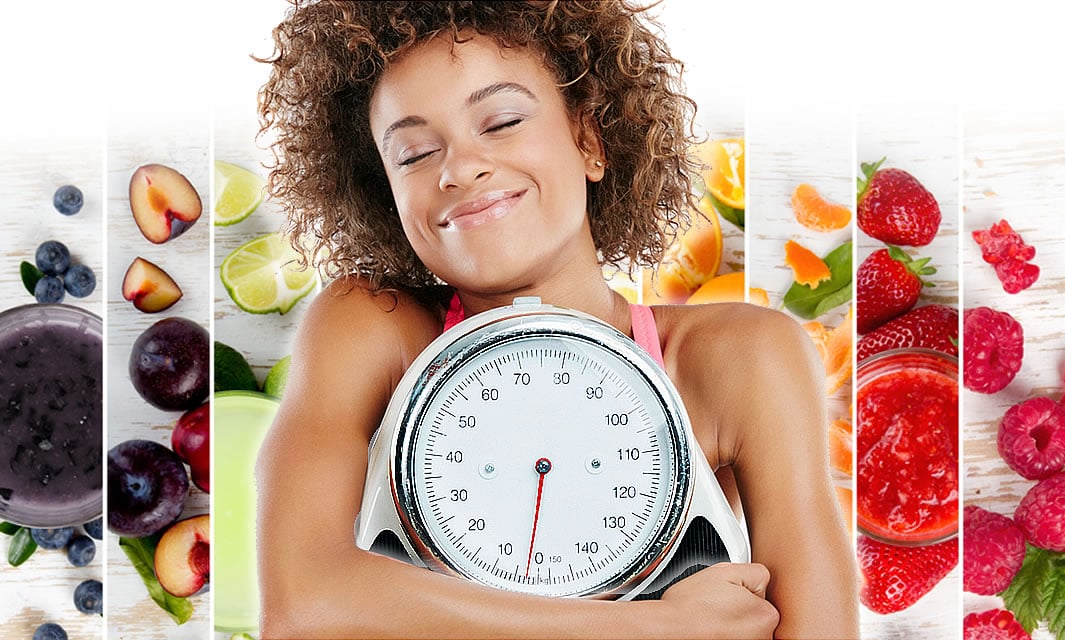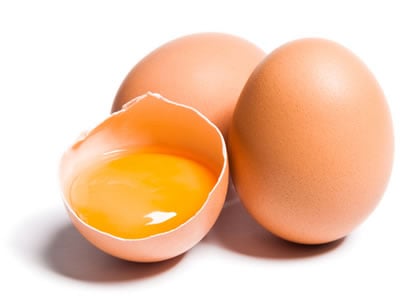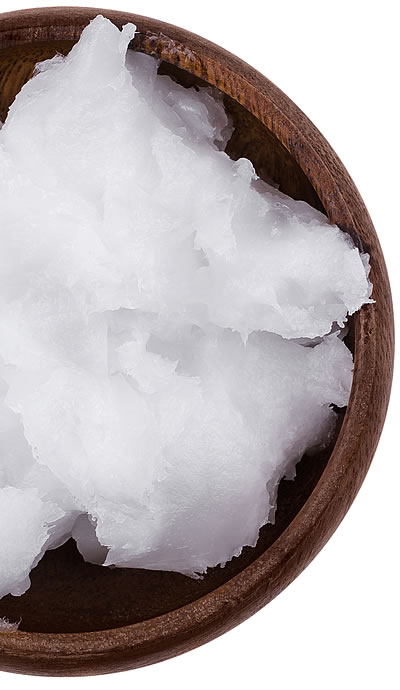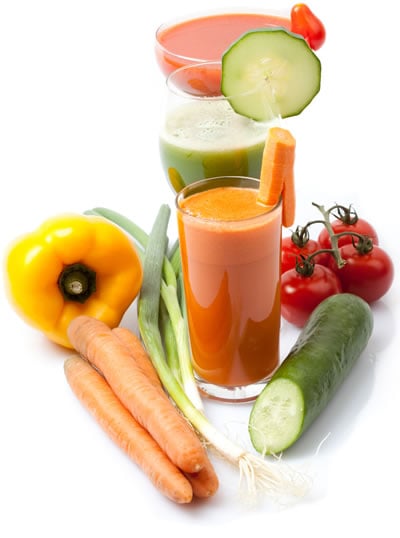Diets That Work + Coconut Oil, Gluten-Free Foods, and Other Trends
Watch out for those trendy juice bars. Your “healthy drink” may be spiked with a bunch of calories from added sugars. And be leery of fancy “natural” names that sound healthy but are really just refined sugar. Agave nectar? It’s just plain old sugar.

Cutting Through the Hype
They gathered from medical schools and nutrition departments from across the country: Northwestern University. George Washington University. University of Maryland. Pennsylvania State University. Cleveland Clinic Wellness Institute. University of California at San Francisco. And more.
The goal of this team of top 12 food experts? To help not only the public but practicing physicians cut through the hype.
And there’s a lot of hype. From TV to the Internet to books and magazines, we’re constantly hearing stories about the wonders of new food fads. “You’ll drop 10 pounds in 10 days!” “Your belly fat will disappear!” “Your heart will be stronger than ever!”
Which promises should we believe? Which are based on solid science? Are there diets that work? What’s best for our hearts and waistlines?
In a recent issue1 of the Journal of the American College of Cardiology (JACC), the 12 nutrition scientists published the results of their exhaustive review. Here is a summary.
Egg Yolks

Though some recent studies (ones with egg industry funding) have suggested that egg yolks have little effect on blood cholesterol, the scientists began their review in JACC with the general admonition “to significantly limit intake of dietary cholesterol in the form of eggs or any high-cholesterol foods to as little as possible.”
That’s because studies2 not funded by the egg industry have consistently found greater effects of eggs on blood cholesterol. Put simply, the more egg yolks people ate, the higher their cholesterol levels rose.
Other high-cholesterol foods include red meats, full-fat dairy products, shellfish, and many processed foods, particularly those with egg yolks in the ingredient list.
Coconut Oil
In their JACC review, the team of 12 researchers characterized any claims for the health benefits of tropical oils such as coconut oil and palm oil as “unsubstantiated, and use of these oils should be discouraged” because they are high in saturated fats, which elevate bad (LDL) cholesterol.

Supporting, and strongly so, their conclusions was another recently published analysis3 in Nutrition Reviews. Dissecting the results of 21 studies that examined the effects of coconut oil and other coconut products, the authors found no evidence – none at all – that consuming coconut oil lowered the risk of heart disease. In fact, compared with oils low in saturated fats, such as sunflower, safflower and olive oil, coconut oil raised LDL cholesterol levels.
The National Lipid Association has also concluded that there is no evidence of any health benefit of coconut oil.4
Coconut Oil and Weight Loss?
But what about weight? Can coconut oil help us shed weight?
No. Don’t be fooled by the coconut industry and a handful of nutrition “experts” who claim that coconut oil is a “miracle fat that fights fat.” The hype is often about the medium-chain triglycerides, or MCTs, that are in coconut oil. Purportedly, our bodies process them differently. Enthusiasts assert that compared to other dietary fats, coconut oil is more likely to be burned for energy than converted to body fat.
But the few small studies that have looked at coconut oil for weight loss have essentially come up empty.
Consuming coconut oil “doesn’t lead to significant weight loss or improved body mass index (BMI),” summed up the Mayo Clinic Health Letter.5
Coconut oil, like any oil, is super dense with calories – about 120 calories per tablespoon. “Consuming too much will inevitably lead to extra calories, and weight gain,” warns Kimberly Gomer, MS, RD, Director of Nutrition at the Pritikin Longevity Center, a health and weight-loss resort in Miami that has been teaching healthy-living skills for more than 40 years.
“For successful, long-term weight loss, stick to the scientifically-grounded facts. No single item – and that includes coconut oil – is a miracle cure. What has been found to be successful is an overall healthy eating pattern, like the Pritikin Eating Plan, plus regular physical activity.”
Liquid Vegetable Oils, Nuts
The 12 authors of the JACC review noted that studies have shown that liquid vegetable oils, such as canola and olive oil, are good for heart health. They help lower bad cholesterol and triglyceride levels and reduce risk of cardiovascular disease, in part because they’re used instead of plaque builders like butter. This recommendation, however, did come with the warning that these oils are loaded with calories and should be consumed sparingly.
The authors made the same qualified recommendation for eating nuts: They’re good for you if you limit the amount you eat.
Fruits and Vegetables
The case for brightly colored fruits and vegetables and green leafy veggies is all positive. The antioxidants in these foods, the 12 reviewers pointed out, have been shown to lower blood pressure and the risk for heart disease and diabetes.
Furthermore, even a plant-based or vegetarian diet can provide all the essential nutrients, including protein, as effectively as diets that include cholesterol- and/or saturated fat-laden meat, eggs, and full-fat milk products.
 Whole fruits vs fruit juices? What’s better for losing weight? Diets that work, wrote the nutrition experts from leading universities nationwide, are diets that are rich in whole fruits, not juices., and nuts in moderation, although some may include limited quantities of lean meats (including poultry and seafood), low-fat dairy products, and liquid vegetable oils. These dietary patterns are also low in saturated, trans, and solid fats; sodium; added sugars; and refined grains.”
Whole fruits vs fruit juices? What’s better for losing weight? Diets that work, wrote the nutrition experts from leading universities nationwide, are diets that are rich in whole fruits, not juices., and nuts in moderation, although some may include limited quantities of lean meats (including poultry and seafood), low-fat dairy products, and liquid vegetable oils. These dietary patterns are also low in saturated, trans, and solid fats; sodium; added sugars; and refined grains.”
Look familiar, Pritikin alumni?
Yes, the diet that works is essentially the Pritikin Eating Plan.
Diets That Work + Food Trends | Summing Up
Food fads are fun (well…cabbage soup?). They often make for lively conversation at parties. They give us something new to shop for at the market. They give us hope.
But unfortunately, hope is not science-based.
Hope will not make us healthy.
For long-term weight control and good health, look to solid, evidenced-based eating plans like Pritikin.
As this recent extensive review in the Journal of the American College of Cardiology found, we can shed weight. We can live well. We can avoid killers like heart disease, hypertension, and type 2 diabetes.
We just need to put the coconut oil back on the shelf and swing our carts right over to the produce aisle.
When we focus on whole foods like fruits, vegetables, beans, potatoes, and whole grains, we’re giving ourselves the healthiest foods on the planet.
What’s more, we no longer need to count calories. We don’t eat less. We eat better.
Best of all, we live better.
Sources
- 1 Journal of the American College of Cardiology, 2017; 69 (9): 1172.
- 2 Are Eggs Healthy? | Pritikin
- 3 Nutrition Reviews, 2016; 74: 267.
- 4 Journal of Clinical Lipidology, 2015; 9 (6 Suppl): S1.
- 5 MayoClinic.org